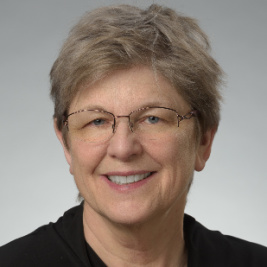Anne Dilenschneider

Topics: Anti-racism, Communication, Discussion Leader, Environment, History, Leadership, Native American, South Dakota, Women
Community: Sioux Falls
Program Types: Book Club to Go, One Book South Dakota, Speakers Bureau, Virtual Program(s)
dradilenschneider@gmail.com | 605-906-5404
Healing Our Shared Past, Present, and Future: The Hiawatha Indian Insane Asylum
(Note: This is a combined presentation with fellow Humanities scholar Jerry Fogg.)
From 1902-1933, Native Americans who angered boarding school staff or reservation agents were sent to the Canton, SD asylum. The place was “like a leper colony” and “inhumane.” 127 Native Americans from fifty-three tribes remain buried there. As Keepers of the Canton Native Asylum Story, we share this story as a way to heal our past.
Going Out Green: 21st Century Natural Burial Options in South Dakota
(This presentation is offered with Mt. Pleasant Cemetery sexton, Matt Gage.)
“Green,” or natural burial, conserves natural resources and preserves wildlife habitat. It’s more environmentally sensitive than cremation, and costs significantly less than other burial practices. 418 cemeteries offer natural burial options in the United States. One is Mt. Pleasant Cemetery in Sioux Falls. This presentation focuses on the American history of natural burial since the 1700s, as well as information on options for an environmentally sound burial.
The Story of a Pioneer – Anna Howard Shaw & Women’s Suffrage
For decades, Rev. Dr. Anna Howard Shaw – leader of the National Woman Suffrage Association, first woman ordained in the Methodist Church (1880), medical doctor, and head of the first children’s immunization program in America – was missing from the Encyclopedia Britannica. This presentation discusses living in the Michigan wilderness, college in the mid-1800s, and leading the effort for women’s right to vote.
Restoring Our Relationships and Communities: The Power of Forgiveness
We are told to apologize when we hurt someone. However, apologies are different from the process of forgiveness. Apologies don’t restore relationships; asking for forgiveness does. Truth & Reconciliation Commissions across the world teach that this is how we repair and rebuild our families, communities, and countries. Dilenschneider draws on their wisdom and explores the power of the process of true forgiveness.
Developing Teams of Leaders
Healthy organizations use eight basic leadership competencies. Each of us has only one competence. In a transformational leadership model, each person lives and grows into their own competency in integrity with their values. Then it’s possible to develop teams of people who allow each other to take turns balancing and sharing leadership. During this session, participants will be introduced to the fundamentals of transformational leadership. If time allows, each participant’s leadership competency will be identified, and participants will learn how to use the processes of transformational leadership to promote personal and community integrity in their context.